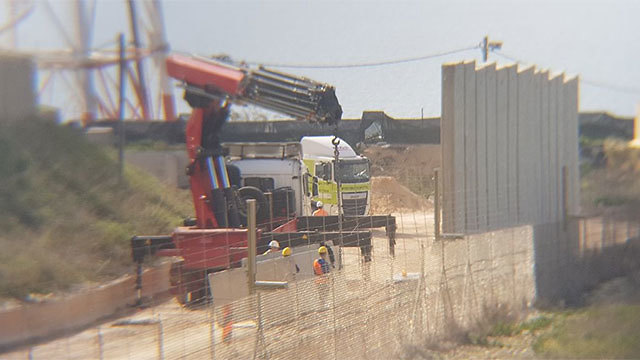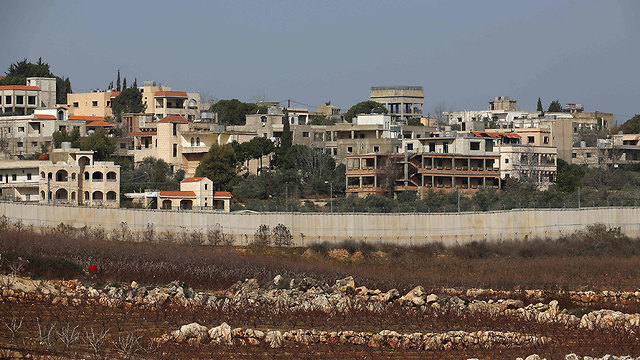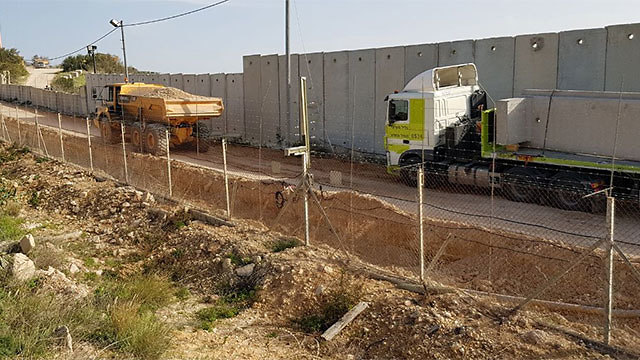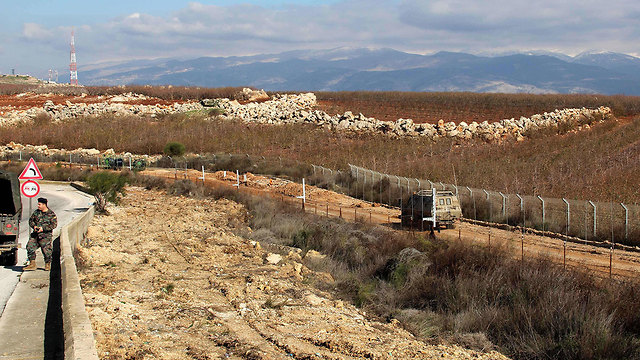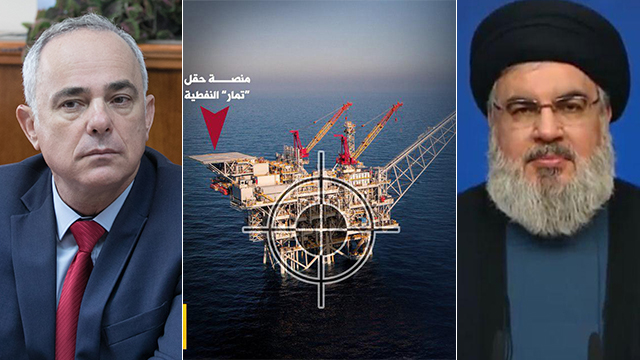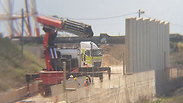
The IDF Northern Command recently began work on a tens-of-meters-high concrete wall along the Lebanese border, stretching from the Mediterranean Sea in the west to Mount Hermon in the east. The initial stage is at Rosh HaNikra, the northernmost point on Israel’s coastline.
Priority is being given to areas near Israeli towns or kibbutzim and other high-risk spots that can offer Hezbollah a topographic advantage that can allow for easier infiltration into Israel.
The IDF made it clear to the United Nations Interim Force in Lebanon (UNIFIL) that the wall is being constructed on Israeli territory exclusively and does not violate Lebanese territory.
The main goal of the wall is to prevent Hezbollah’s elite “Radwan” force from infiltrating Israel during a conflict, and trying to capture an Israeli town or military outpost, an act that would deal a severe blow to Israeli morale and a boost for the terrorist group.
For their part, a UNIFIL spokesman said Wednesday that Israel had begun work south of the border line and added that the UN organization was closely monitoring the events. The spokesman, quoted in Lebanese media, said that UNIFIL was maintaining contact with officials on both sides of the border in order to solve the matter (Lebanese objections) and prevent unnecessary tension or deterioration.
Lebanese channel Al-Mayadeen reported on behalf of a Lebanese official that the IDF had begun building the concrete wall, but in areas other than where Lebanon had expressed reservations about and opposed the wall’s construction.
The wall is not the only matter of dispute between Israel and Lebanon. In recent days, the dispute regarding the two countries territorial waters and their maritime gas fields has increased tensions.
Israeli Energy Minister Yuval Steinitz told Ynet, “We hope for and are prepared to reach a diplomatic solution to the matter.” That was also the headline used by Al-Mayadeen while quoting Ynet.
Steinitz also made it clear that “they should not threaten, and definitely not invade our territorial waters. If they attack us, our response will be fast and more devastating than in the past. Israel is the strongest nation in the region and we will defend our sea territory and the gas drilling rigs.”
Steinitz was responding to statements by senior Lebanese politicians, as well as by Hezbollah, regarding their opposition to the border wall and the matter of the natural gas fields in maritime “Block-9,” which is a matter of dispute between Lebanon and Israel.
The three most prominent men in Lebanon’s government—President Michel Aoun, Prime Minister Saad Hariri and Parliament Speaker Nabih Berri—have all declared that their resolve in preventing Israel from building the wall which they said violates Lebanese sovereignty.
The three met at the Presidential Palace in Beirut to discuss “Israeli threats” which they see as a threat to regional stability. They said that Israeli rhetoric was in violation of UN Security Council resolution 1701 and violated the terms of the August 2006 ceasefire. The three agreed to continue their efforts to stop Israel from “building a concrete wall in Lebanon.”
Hezbollah also released a message directed at Israel. The Shiite organization distributed pamphlets quoting a recent speech by their leader Hassan Nasrallah, where he said that Lebanon would not give up its maritime rights.
The pamphlets also included explicit threats at Israel: “Those who violate the natural gas in Lebanese waters will be harmed in return and (Israel) knows we are capable.” A video released along with the pamphlets included a photo of Defense Minister Avigdor Lieberman alongside his statements regarding Israeli sovereignty over the disputed area. Missiles hitting Israeli gas drilling rigs were also part of the video.













